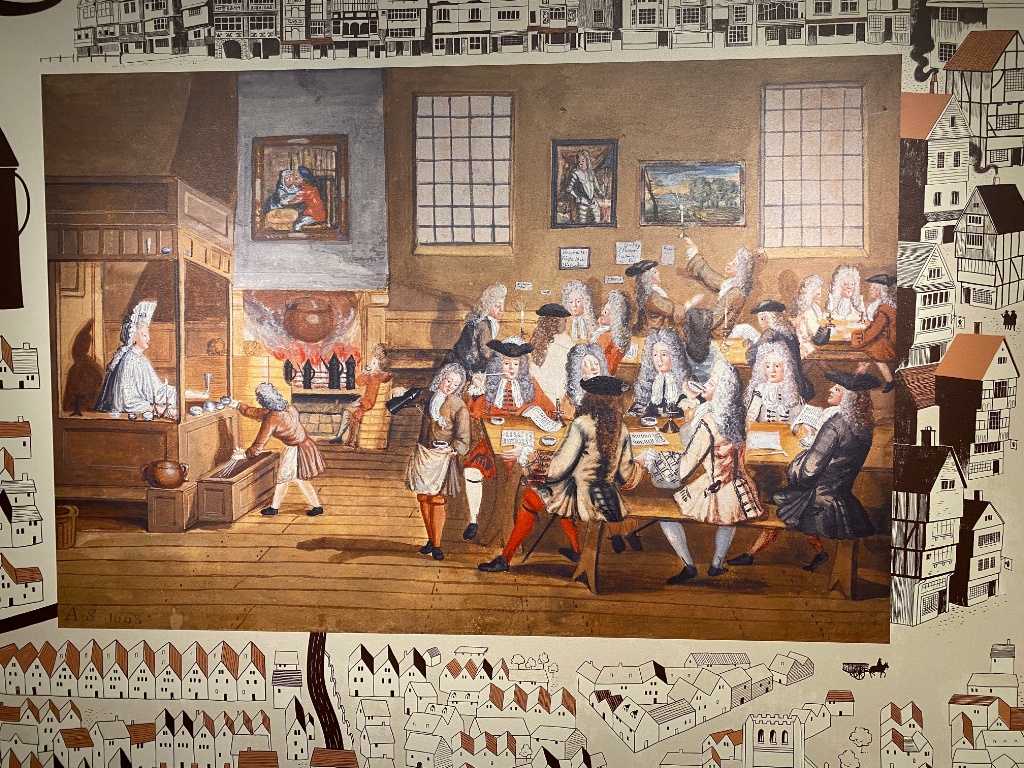An early version of Habermas’s ‘public sphere’?

An illustration of an 18th-century coffee house from the British Library’s Breaking the News exhibition that I went to yesterday.
The mystery of our mysterious plant.
Many thanks to everyone who emailed with suggestions. Turns out it’s even more complicated that I thought, and I’m trying to assess the various suggestions. More later.
Quote of the Day
“When Boris Johnson has nowhere to go, the nowhere he goes to is Northern Ireland. It is, for him, an empty space, a vacuum he can fill with any old blather that is useful to him at the time.
What suits him right now is to try to reassemble the old Brexit band of 2019 – the ERG and the DUP – in the hope that the forces that brought him to power will help keep him there.
The needs and desires of the people of Northern Ireland are neither here nor there. NI stands for Not Interested.
- Fintan O’Toole, Irish Times, 14.06.2022*
Musical alternative to the morning’s radio news
Boccherini | Sonata for Two Cellos in C Major, G74 | Amit Peled and Ismael Guerrero
Long Read of the Day
Cory Doctorow on ‘regulatory capture’
First, some background if you’re new to this stuff…
Here’s a story about “regulatory capture”: Donald Trump appointed Ajit Pai, a former Verizon lawyer, to run the Federal Communications Commission, which is in charge of regulating companies like Verizon. Verizon — and the other big telcos and cable operators — wanted to kill Net Neutrality.
Net Neutrality is the idea that your ISP should send you the bits you request as quickly and reliably as it can. That means when you click a link, your ISP does its level best to get that link for you.
Net Neutrality’s opposite is net discrimination. That’s when your ISP is allowed to slow down or otherwise degrade your connection. Why would ISPs do this? Because it represents a new revenue source: ISPs get to charge you for your internet connection, and then charge the companies that run the services you value for “priority” access to you. If they don’t pay, your ISP can slow down their services so they’re less useful to you, prompting you to switch to a rival who did pay for priority carriage.
Internet users really don’t like network discrimination. How do we know that? Well, the FCC had to ask them (all US federal administrative agencies have to accept public comments before changing policy).
It’s a great story and nobody tells it as well as Cory.
So worth your time.
My commonplace booklet
Fascinating Hacker News thread on “Which book can attract anyone towards your field of study?” James Scott’s Seeing Like a State comes top, followed by Jane Jacobs’s The Life and Death of Great American Cities. I can vouch for both.
This Blog is also available as a daily email. If you think that might suit you better, why not subscribe? One email a day, Monday through Friday, delivered to your inbox. It’s free, and you can always unsubscribe if you conclude your inbox is full enough already!
